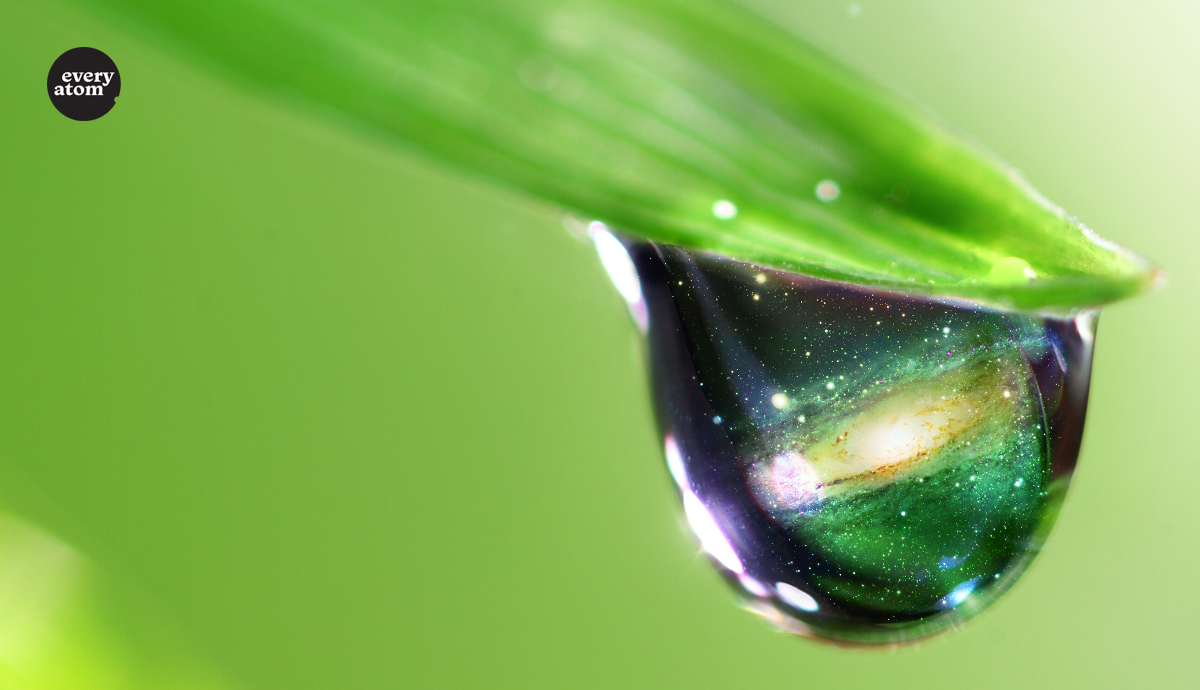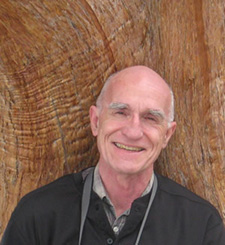Every Atom | No. 67
Introduction to Every Atom by project curator Brian Clements
Whenever I return to Leaves of Grass, especially the 1855 edition, I am astonished by how boldly Whitman replaces the prevailing western religious story of the cosmos with the emerging scientific one. In place of the Biblical account of Creation, with its anthropomorphic God fashioning the world in seven days, Whitman invokes gradual natural processes—nebulae cohering into stars, the “long slow strata” of geology forming on the Earth, “Monstrous sauroids” and other creatures inhabiting the planet before the appearance of humans. He published such passages, it should be remembered, fourteen years before Darwin published On the Origin of Species.
Instead of condemning the body as fallen, corrupted by the original sin of Adam and Eve, and instead of treating sex as shameful, he declares,
Copulation is no more rank to me than death is.
I believe in the flesh and the appetites,
Seeing hearing and feeling are miracles, and each part and tag of me is a miracle.
Divine am I inside and out, and I make holy whatever I touch or am touched from;
The scent of these arm-pits is aroma finer than prayer,
This head is more than churches or bibles or creeds.
While the Bible places humans at the apex of Creation, Whitman gives equal billing to all the other animals, and even to plants:
I believe a leaf of grass is no less than the journeywork of the stars,
And the pismire is equally perfect, and a grain of sand, and the egg of the wren…
And the running blackberry would adorn the parlors of heaven,…
And a mouse is miracle enough to stagger sextillions of infidels….
In certain respects, he regarded other animals as superior to humans:
They do not sweat and whine about their condition,
They do not lie awake in the dark and weep for their sins,
They do not make me sick discussing their duty to God….
Rejecting the patriarchal hierarchy dominated by males, Whitman insists on the equal dignity and worth of women:
I am the poet of the woman the same as the man,
And I say it is as great to be a woman as to be a man,
And I say there is nothing greater than the mother of men.
Well before modern telescopes enlarged our vision of the universe, Whitman imagined a cosmos vaster than the Earth-centered Biblical one:
I open my scuttle at night and see the far-sprinkled systems,
And all I see, multiplied as high as I can cipher, edge but the rim of the farthest systems.
Wider and wider they spread, expanding and always expanding,
Outward and outward and forever outward.
The universe is indeed expanding, a fact that humans did not learn until some seventy years after Whitman wrote those visionary lines.
Recommended
Nor’easter
Post-Op Appointment With My Father
Cedar Valley Youth Poet Laureate | Fall 2024 Workshop







